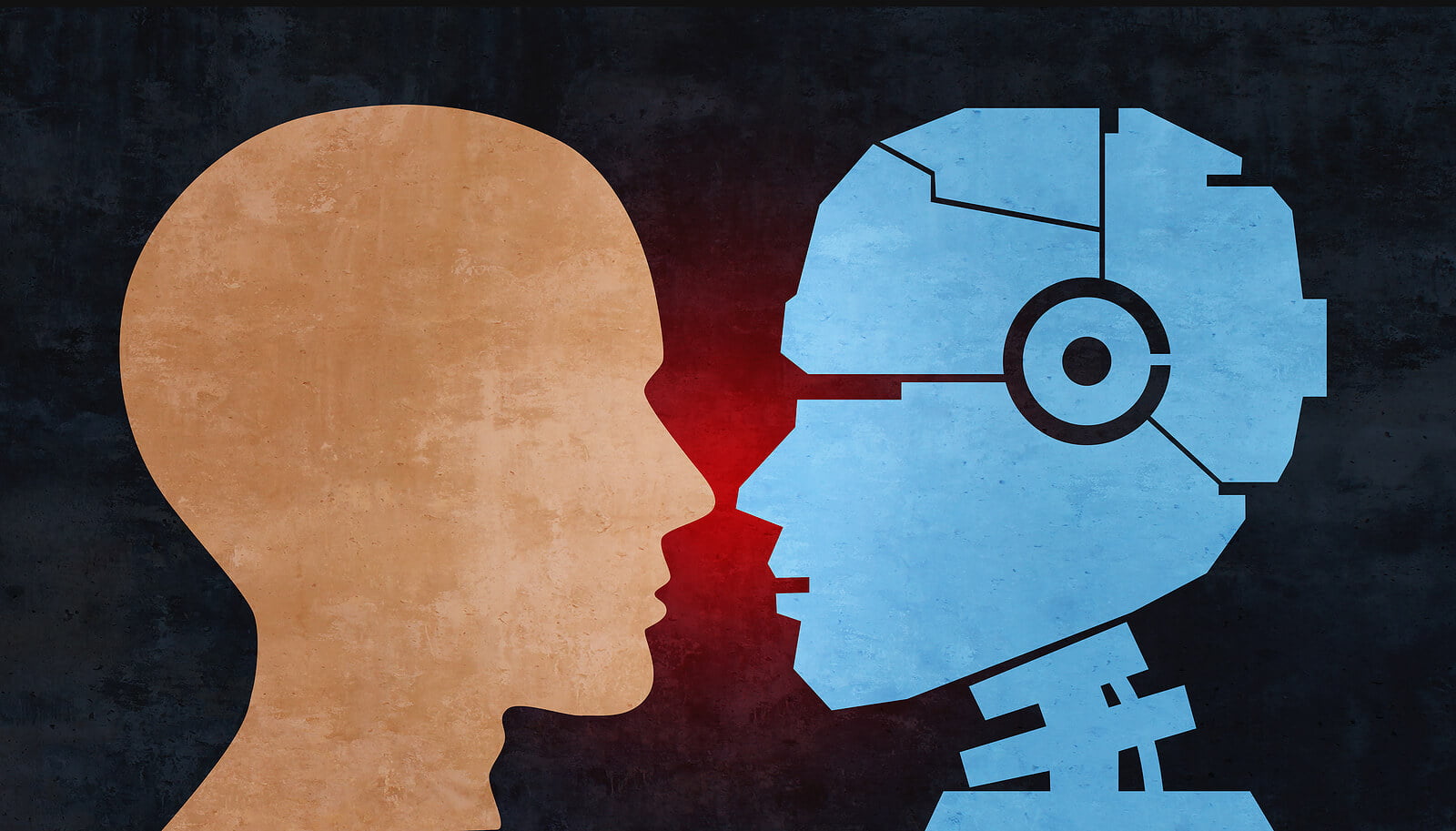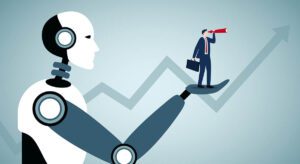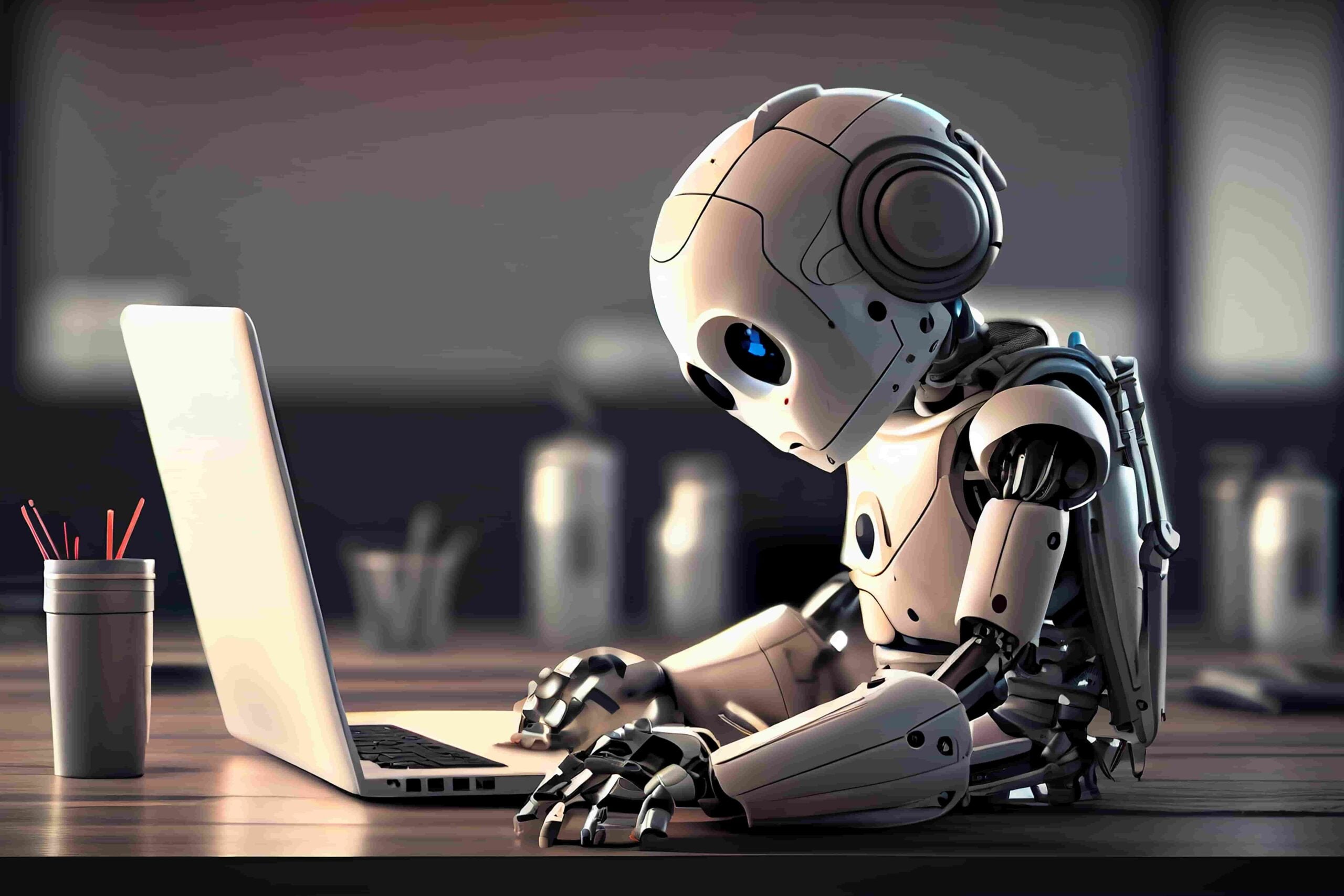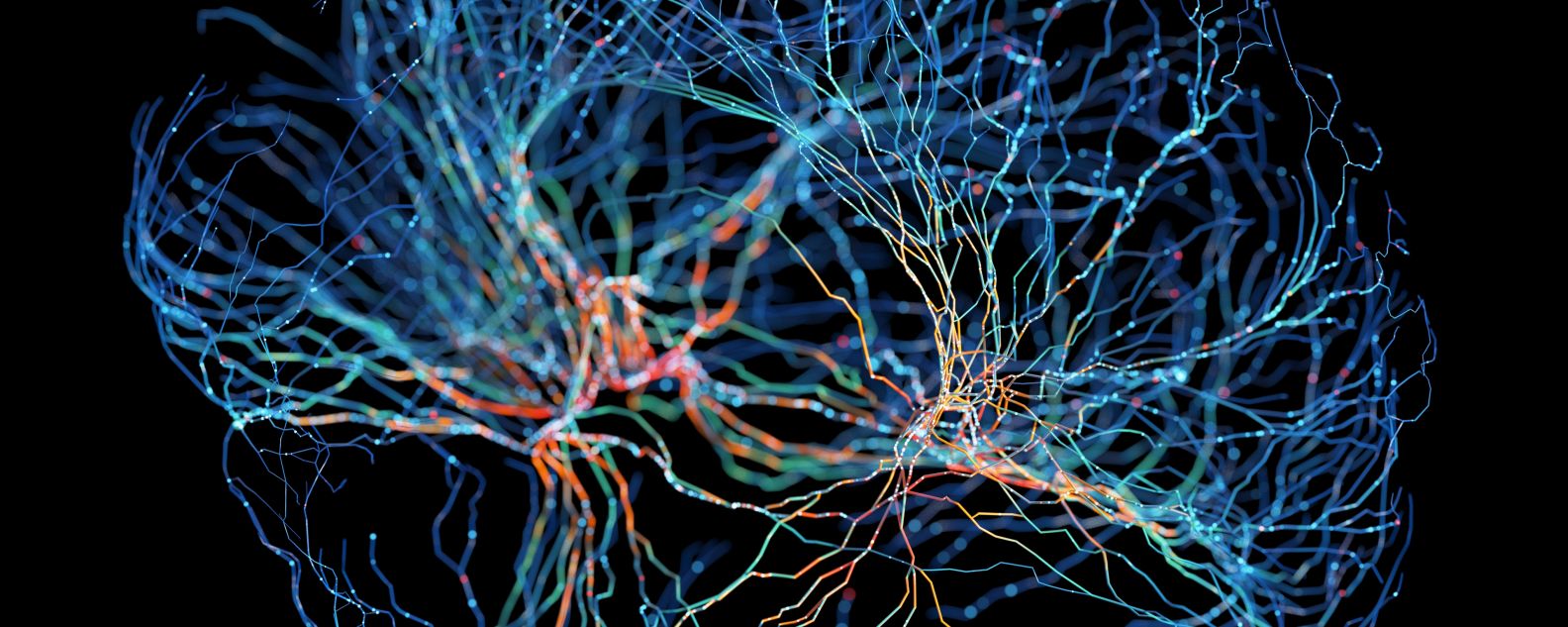In the Ever Evolving world of Technology, The role of Artificial Intelligence (AI) is Rapidly becoming more prominent. From the ongoing debate on whether AI will create more jobs than it replaces to concerns about its negative impact on employment and the economy, this blog post explores how AI is shaping the job landscape and The Impact of Artificial Intelligence on The Job Market. We’ll take a closer look at how AI affects jobs globally and discuss the potential consequences, opportunities, and the numbers involved.
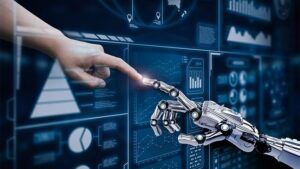
The Growing Role of AI in the Job Market
The world of work is no stranger to technological advancements, but AI’s influence is unique. It’s not just about automating manual tasks, it’s about making machines think and learn. AI systems are designed to mimic human intelligence and perform tasks such as data analysis, speech recognition, and decision-making. As AI capabilities expand, its integration into various industries is changing the nature of jobs.
In this rapidly changing landscape, it’s essential to consider both the potential negative impacts and the opportunities AI presents for job seekers, employees, and employers. Let’s dive into the ongoing debate on whether AI will create or eliminate jobs.
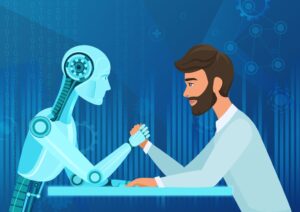
Will AI Create More Jobs than It Destroys?
The debate surrounding AI’s impact on employment is a topic of considerable interest. On one side, there are concerns about AI’s potential to displace traditional jobs, leading to a negative impact on employment. The fear of AI-driven automation is real, and it’s not unfounded. AI systems are already being used to automate routine tasks in various industries, from manufacturing to customer service. The worry is that this trend will continue, causing unemployment for many.
However, there’s another side to the debate. Proponents argue that while AI may displace Certain jobs, it also has the potential to create new ones. AI’s growth fuels job opportunities in AI development, data science, and related fields. The demand for AI professionals is on the rise. These roles require specialized skills and knowledge, and they are at the forefront of the technological revolution.
AI’s Impact on Jobs Globally
To understand the global impact of AI on jobs, we need to examine its effects on the workforce. AI is gradually changing the way we work, and while it does replace certain jobs, it’s also reshaping others. Here are some key areas where AI is making a mark:
Automation and Job Disruption:
AI technologies are increasingly capable of automating routine tasks. This has led to job displacement in several sectors, such as manufacturing and customer service. The fear of machines taking over human tasks is a valid concern. However, it’s crucial to note that this automation also enhances efficiency and productivity in these industries.
AI and Job Creation:
While some jobs may be replaced, AI is also creating new ones. The development, maintenance, and advancement of AI systems require skilled professionals. Data scientists, machine learning engineers, and AI researchers are in high demand. These roles not only involve building AI systems but also understanding and optimizing their functioning.
Impact on Specific Industries:
The influence of AI varies across industries. In healthcare, AI is assisting in diagnostics and treatment planning, improving patient care. In finance, it’s used for fraud detection and algorithmic trading. While, In manufacturing, AI-driven automation streamlines production processes. In customer service, chatbots handle inquiries and support. AI’s impact is pervasive and has the potential to revolutionize various sectors.
Economic and Societal Implications:
The economic and societal implications of AI’s impact on jobs are far-reaching. The adoption of AI is expected to lead to changes in economic productivity and growth. While it may lead to job displacement, it also fosters innovation in products and services. Governments, businesses, and individuals need to adapt to these changes and find ways to harness AI’s potential for economic and societal development.
AI’s Impact on Jobs in India
In India, AI’s influence on jobs is a topic of growing significance. The country is a hub for IT services and has a substantial workforce in technology-related roles. As AI continues to advance, it has a significant impact on the Indian job market.
The Indian IT Sector:
India’s IT sector has been a significant contributor to the country’s economy and job market. With the growth of AI, the IT sector is evolving to incorporate AI services, including data analytics, machine learning, and AI-driven software development. This transition is creating a demand for AI professionals who can develop and implement AI solutions.
Outsourcing and Automation:
India has been a prominent destination for outsourcing IT and business process services. The rise of AI is leading to increased automation of tasks within these services. While this can improve efficiency, it may also result in job displacement in certain outsourcing roles.
Job Creation in AI and Data Science:
India is witnessing a surge in job opportunities in AI and data science. Companies are actively seeking data scientists, machine learning engineers, and AI researchers to develop cutting edge solutions. Indian professionals with the right skills are well positioned to benefit from this trend.
Reskilling and Upskilling: The adoption of AI in India emphasizes the need for reskilling and upskilling the existing workforce. Many professionals are choosing to acquire AI-related skills to stay competitive in the evolving job market.
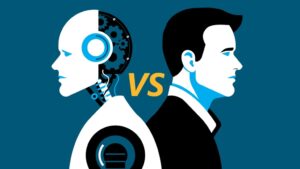
Negative Impact of Artificial Intelligence on Employment
While AI’s impact on employment is not solely negative, there are valid concerns that need to be addressed. It’s essential to recognize these concerns to implement strategies that mitigate their effects.
Job Displacement:
AI’s ability to automate tasks may lead to job displacement in certain industries. Workers in roles involving routine, repetitive tasks are most vulnerable to automation. Job displacement can result in unemployment and the need for workers to acquire new skills for reemployment.
Retraining Challenges:
Reskilling and upskilling the workforce is a solution, but it comes with challenges. Retraining an existing workforce, especially those in mid-career, can be complex and time-consuming. Employers and educational institutions need to provide accessible and effective retraining programs.
Privacy and Ethical Concerns:
AI’s use in data analysis and decision-making can raise privacy and ethical concerns. Protecting individuals’ data and ensuring that AI systems make ethical decisions are paramount. Ethical AI usage is essential for maintaining public trust.

What Jobs Will AI Replace?
AI’s impact on specific job roles is a topic of interest. While AI can automate certain tasks, it’s essential to understand which job roles are most likely to be affected:
Customer Service Representatives: AI-powered chatbots and automated customer support systems are increasingly handling customer inquiries, reducing the need for human agents in routine interactions.
Receptionists: In some companies, AI systems now manage phone calls and guest interactions, reducing the need for traditional receptionists.
Accountants/Bookkeepers: AI-driven bookkeeping services can efficiently collect, store, and analyse financial data, reducing the need for manual data entry and financial recordkeeping.
Salespeople: AI’s data-driven insights are transforming sales and marketing strategies, reducing the need for traditional sales roles.
How Many Jobs Will AI Replace by 2025 and 2030?
The extent of job displacement due to AI is a significant concern. It’s essential to understand the projections for the impact of AI on employment in the near and distant future.
AI by 2025: The World Economic Forum has estimated that AI could replace around 85 million jobs by 2025. The rise of automation and AI-driven processes is expected to bring about significant changes in the job landscape.
AI by 2030: PwC’s estimates suggest that by the mid-2030s, up to 30% of jobs could be automatable. While AI may affect both men and women, specific industries and roles may experience more significant changes.

Jobs AI Will Not Replace
While AI’s impact on employment is a significant concern, there are job roles that are less likely to be affected by AI due to their unique human-centric nature. These roles involve complex decision making, emotional intelligence, and human interaction:
Teachers:
The role of educators is deeply rooted in human interaction, mentorship, and personalized learning. While AI can assist in education, it cannot replace the fundamental human connection between teachers and students.
Artists and Writers:
Creative professions, such as writing, are deeply imaginative and artistic. The ability to craft content with a unique human touch remains a hallmark of these roles.
Lawyers and Judges:
Legal professions require complex negotiation, strategy, and case analysis. The personal experience and expertise of legal specialists play a crucial role in the legal system.
Directors, Managers, and CEOs:
Leadership and strategic decision-making involve a level of human judgment and communication that cannot be fully replicated by AI.
HR Managers:
HR managers play a critical role in maintaining a motivated and harmonious workforce. They address employee concerns and maintain organizational culture.
Psychologists and Psychiatrists:
Mental health professions require a deep understanding of human emotions and complexities. AI can assist but not replace the human touch required in these roles.
Computer System Analysts:
Maintenance, updates, and complex system setup require a human presence. Computer system analysts ensure the efficient operation of software and hardware.
Surgeons:
Surgical procedures involve intricate decision-making, considering various factors simultaneously. Surgeons’ expertise, experience, and dexterity are irreplaceable.
Preparing for the AI-Driven Job Market
The future of work in an AI-driven world necessitates proactive preparation. To navigate the evolving job landscape, individuals, businesses, and educational institutions need to embrace strategies that harness AI’s potential while mitigating its negative impacts.
Embrace Lifelong Learning: In an era of AI, continuous learning is essential. Taking courses, attending workshops, and staying updated on industry trends are vital for career growth.
Develop Soft Skills: While AI excels in routine tasks, human soft skills like communication, problem-solving, and emotional intelligence remain invaluable.
Be Agile: Adaptability is a key trait for success in the AI-driven job market. Being open to learning new skills and exploring new career paths is crucial.
Specialize: As AI becomes more widespread, specialized skills and knowledge will be in high demand. Developing expertise in a particular area can set individuals apart in the job market.
The AI-Driven Future of Work
The Question that is Trending is How Will Artificial Intelligence Affect The Job Market in the Future and The debate on AI’s impact on jobs is ongoing, but one thing is certain, AI is reshaping the world of work. It has the potential to both displace and create jobs. To thrive in this evolving landscape, individuals need to adapt, learn, and embrace the opportunities that AI presents. By doing so, they can secure a place in the AI-driven job market and contribute to its growth and development. As we step into this AI-driven future of work, it’s essential to strike a balance between automation and human ingenuity for a prosperous and harmonious job market.
So, This was Our Take on How Will Artificial Intelligence Affect The Job Market?
